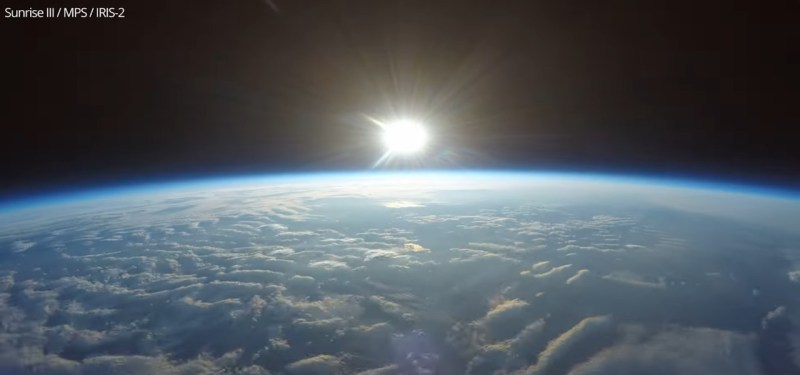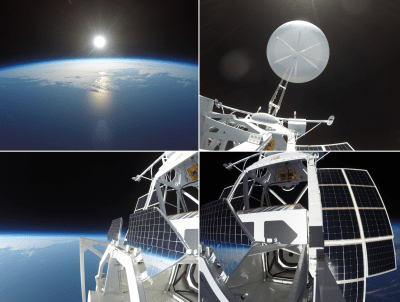Catching the View from the Edge of Space

Does “Pix or it didn’t happen” apply to traveling to the edge of space on a balloon-lofted solar observatory? Yes, it absolutely does.
The breathtaking views on this page come courtesy of IRIS-2, a compact imaging package that creators [Ramón García], [Miguel Angel Gomez], [David Mayo], and [Aitor Conde] recently decided to release as open source hardware. It rode to the edge of space aboard Sunrise III, a balloon-borne solar observatory designed to study solar magnetic fields and atmospheric plasma flows.
 To do that the observatory needed a continual view of the Sun over an extended period, so the platform was launched from northern Sweden during the summer of 2024. It rose to 37 km (23 miles) and stayed aloft in the stratosphere tracking the never-setting Sun for six and a half days before landing safely in Canada.
To do that the observatory needed a continual view of the Sun over an extended period, so the platform was launched from northern Sweden during the summer of 2024. It rose to 37 km (23 miles) and stayed aloft in the stratosphere tracking the never-setting Sun for six and a half days before landing safely in Canada.
Strictly speaking, IRIS-2 wasn’t part of the primary mission, at least in terms of gathering solar data. Rather, the 5 kg (11 pound) package was designed to provide engineering data about the platform, along with hella cool video of the flight. To that end, it was fitted with four GoPro cameras controlled by an MPS340 microcontroller. The cameras point in different directions to capture all the important action on the platform, like the main telescope slewing to track the sun, as well as details of the balloon system itself.
The controller was programmed to record 4K video at 30 frames per second during launch and landing, plus fifteen minutes of 120 FPS video during the balloon release. The rest of the time, the cameras took a single frame every two minutes, which resulted in some wonderful time-lapse sequences. The whole thing was powered by 56 AA batteries, and judging by the video below it performed flawlessly during the flight, despite the penetrating stratospheric cold and blistering UV exposure.
Hats off to the IRIS-2 team for this accomplishment. Sure, the videos are a delight, but this is more than just eye candy. Seeing how the observatory and balloon platform performed during flight provides valuable engineering data that will no doubt improve future flights.